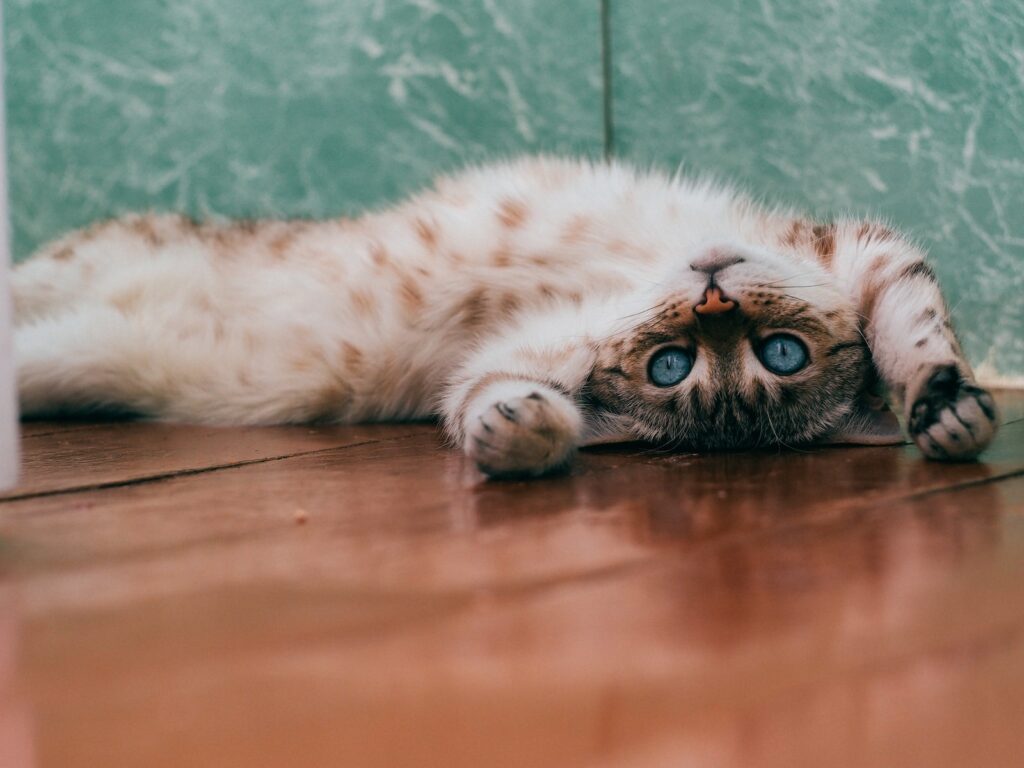Can Cats Eat Potatoes? — No, They can’t
Feeding potatoes to your feline friends might seem tempting, especially when you want to share your meals with them. However, it’s important to note that cats should not consume potatoes. Potatoes contain solanine, a toxic substance that can be harmful to cats if ingested in large quantities. Although small amounts of cooked potatoes may not cause immediate harm, it’s best to avoid including potatoes in your cat’s diet altogether.
Can Kittens Eat Potatoes?
Just like adult cats, kittens should not be given potatoes as part of their diet. The toxic compounds present in potatoes, especially solanine, can have a more severe impact on the delicate digestive systems of young kittens. To ensure their optimal health and well-being, it’s essential to avoid feeding potatoes to kittens.
Things to consider when feeding potatoes to kittens?
As mentioned before, it’s crucial to refrain from feeding potatoes to kittens due to the potential toxicity. Instead, focus on providing them with a balanced diet specifically formulated for their nutritional needs.
Nutritional Benefits of Potatoes for Cats — Why Potatoes are not Suitable for Cats?
1. Lack of Essential Nutrients
Potatoes lack several essential nutrients that are crucial for a cat’s health, such as taurine, which is important for heart health and proper vision. Feeding potatoes to cats can result in nutritional imbalances and deficiencies.
2. Digestive Issues
Cats are obligate carnivores, meaning their digestive systems are specifically designed to process animal-based proteins. Potatoes, being a starchy vegetable, can be difficult for cats to digest and may lead to gastrointestinal discomfort, including gas and diarrhea.
3. High Carbohydrate Content
Potatoes are high in carbohydrates, which are not a necessary component of a cat’s diet. Excessive carbohydrate intake can lead to weight gain, obesity, and related health problems, such as diabetes.
4. Potential Allergenicity
Some cats may have allergies or sensitivities to potatoes, which can cause skin irritations, itching, or gastrointestinal disturbances. It’s important to observe your cat’s behavior and health closely if they accidentally consume potatoes.
5. Risk of Toxicity
As mentioned earlier, potatoes contain solanine, a toxic compound that can be harmful to cats. Even small amounts of solanine can have adverse effects on cats, including gastrointestinal upset, neurological symptoms, and in severe cases, even death.
Potential Allergies: Can Cats Be Allergic to Potatoes?
Cats can develop allergies to a variety of foods, including potatoes. If your cat shows signs of allergy or sensitivity after consuming potatoes, such as vomiting, diarrhea, excessive itching, or hair loss, it’s essential to consult with a veterinarian to address the issue and determine a suitable diet.
Symptoms of Potato Allergies in Cats
- Vomiting: Cats experiencing potato allergies may vomit shortly after consuming potatoes.
- Diarrhea: Digestive upset, including diarrhea, can be a sign of potato allergy in cats.
- Excessive Itching: Cats with potato allergies may exhibit increased scratching, licking, or biting their fur and skin.
What to Do If Your Cat Shows Symptoms?
- Consult a Veterinarian: If you notice any of the above symptoms or suspect your cat is allergic to potatoes, consult a veterinarian for proper diagnosis and guidance.
- Elimination Diet: Your veterinarian may recommend an elimination diet to identify the specific allergen and provide alternative dietary options for your cat.
- Alternative Food Options: Once your cat’s allergies are confirmed, your veterinarian can suggest suitable alternatives to potatoes that meet your cat’s nutritional needs.
Recommended Amount: How Much Potatoes Can a Cat Consume?
Since potatoes are not suitable for cats, there is no recommended quantity or frequency for feeding them potatoes. It’s best to focus on providing a balanced diet that meets the specific nutritional requirements of cats, which primarily consists of high-quality animal protein.
Things to Consider When Feeding Potatoes to Cats
Given the potential hazards associated with potatoes for cats, it is strongly advised to completely exclude potatoes from their diet. Ensure your cat’s meals consist of species-appropriate foods that cater to their nutritional needs.
How to Feed Potatoes to Cats: A Quick Guide
Feeding potatoes to cats is not recommended. However, if you wish to treat your furry friend with a similar texture and taste, there are alternative options available. Consult with your veterinarian to explore safe and healthy treat options for your beloved companion.
Recipe 1 Name: Potato-Free Treat Bites
Ingredients:
- $1 cup of cooked and mashed pumpkin$
- $1/4 cup of cooked and mashed chicken$
- $1/4 cup of cooked and mashed peas$
- $1/4 cup of plain Greek yogurt$
- $1/4 cup of rolled oats$
Instructions:
- Mix all the ingredients in a bowl until well combined.
- Shape the mixture into small bite-sized balls.
- Place the treats on a baking sheet lined with parchment paper.
- Bake at 350°F (175°C) for about 15 minutes or until the treats are firm.
- Allow them to cool before serving to your cat as an occasional, potato-free treat.
Conclusion
In conclusion, cats should not eat potatoes due to the presence of toxic compounds, potential allergenicity, and their nutritional profiles not meeting feline dietary requirements. It’s crucial to prioritize your cat’s well-being by providing them with a balanced diet that consists of appropriate animal-based proteins. If you have any concerns regarding your cat’s diet, always consult with a veterinarian for professional advice tailored to your pet’s specific needs.






